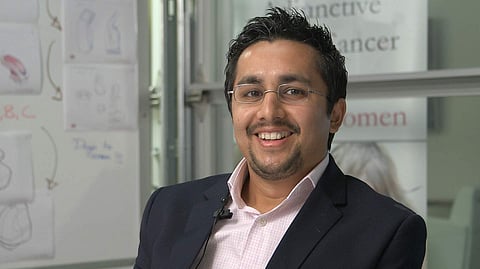

It was only a few years ago when Mihir Shah had seen his mother-in-law go through the pain of breast cancer. Fortunately, proper and timely medical care helped her go into remission and she bounced back to life. But Mihir wasn't going to just sit back and feel grateful. Instead, in 2009, his personal experience led him to start UE LifeSciences, a start-up that harnesses the power of science, technology and research to create early cancer detection tools — starting with breast cancer.
Explaining the results of their research, Mihir, who is the Founder and CEO of UE LifeSciences, says, "Breast cancer is the most common form of cancer in India. Every year, 1,60,000 women get diagnosed and over 87,000 die from it, among which, half of them are below the age of 50. On the other hand, breast cancer is highly treatable if detected at an early stage and yet, most women are diagnosed late, especially in developing countries. We learnt that this happens because breast cancer control programmes built with mammography are very expensive and women don’t want to go through painful and radiation-based tests. Hence, we developed a device called iBreastExam that can screen women non-invasively for this disease."
Now, the device was obviously not something the team created overnight. Years of research and development and gathering of funds for more research and development is what it took. Before the iBreastExam was available commercially, they created another non-invasive device. "In the past, we built a thermal imaging device called NoTouch BreastScan. It was the only device of its kind with FDA clearance from the US government. In the world of science and innovation, we need to come up with solutions that can help the common man and iBreastExam is the result of it. The device uses an innovative sensor that can assess tissue elasticity in real time. Tumours are harder than normal breast tissue and the sensors in the device can feel them quickly, without causing pain or using radiation," he adds.
Today, over 50 healthcare providers in India including Manipal, Aster, Narayana Health Hospitals and Apollo TeleHealth use the device. While it costs Rs 500 for screening in private hospitals, it's only ₹80 in government hospitals. The device has not only created an impact in India, but abroad as well. According to the data from UE LifeSciences, over 1,75,000 women in 12 countries have had access to early detection of breast cancer with the help of this device and over 120 cases of cancer were detected.
